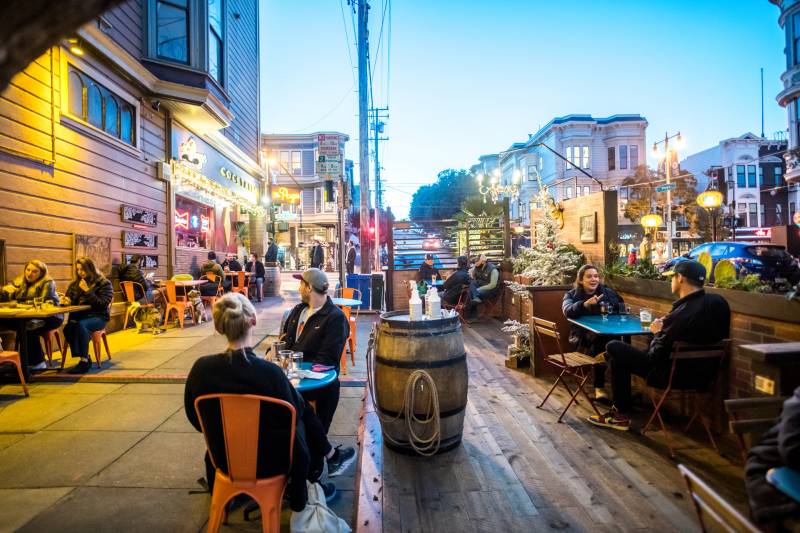When Wiener announced the measure on Friday, he said it would help revitalize downtowns where foot traffic has plummeted since the pandemic, including his home of San Francisco. Cities will be able to tailor these zones to their needs, allowing bars and restaurants to sell to-go drinks similar to what vendors do at festivals.
Wiener, in a statement: “Getting people back out in the streets is key to the economic recovery of cities across California. By creating Entertainment Zones, we’re giving people a reason to go back to areas where recovery has been slow while creating a vital new revenue stream for bars and restaurants.”
Wiener also cited research from the University of Toronto that tracked cell phone activity to determine how well cities have rebounded since the pandemic. In October, it found that San José had recovered 96% of visitors to its downtown area, surpassing Los Angeles at 83%, San Francisco at 67% and Sacramento at 66%.
Hoping to continue that momentum, the cities of San José and San Francisco are included as sponsors of the bill, with San José Mayor Matt Mahan saying it will “make it easier for local businesses to host block parties, wine walks” and other events “to help drive the vibrant future of our downtown.”
The proposal is likely to get pushback from neighborhood groups worried about public nuisances and noise, as well as organizations concerned with alcohol-related health impacts and harm.
